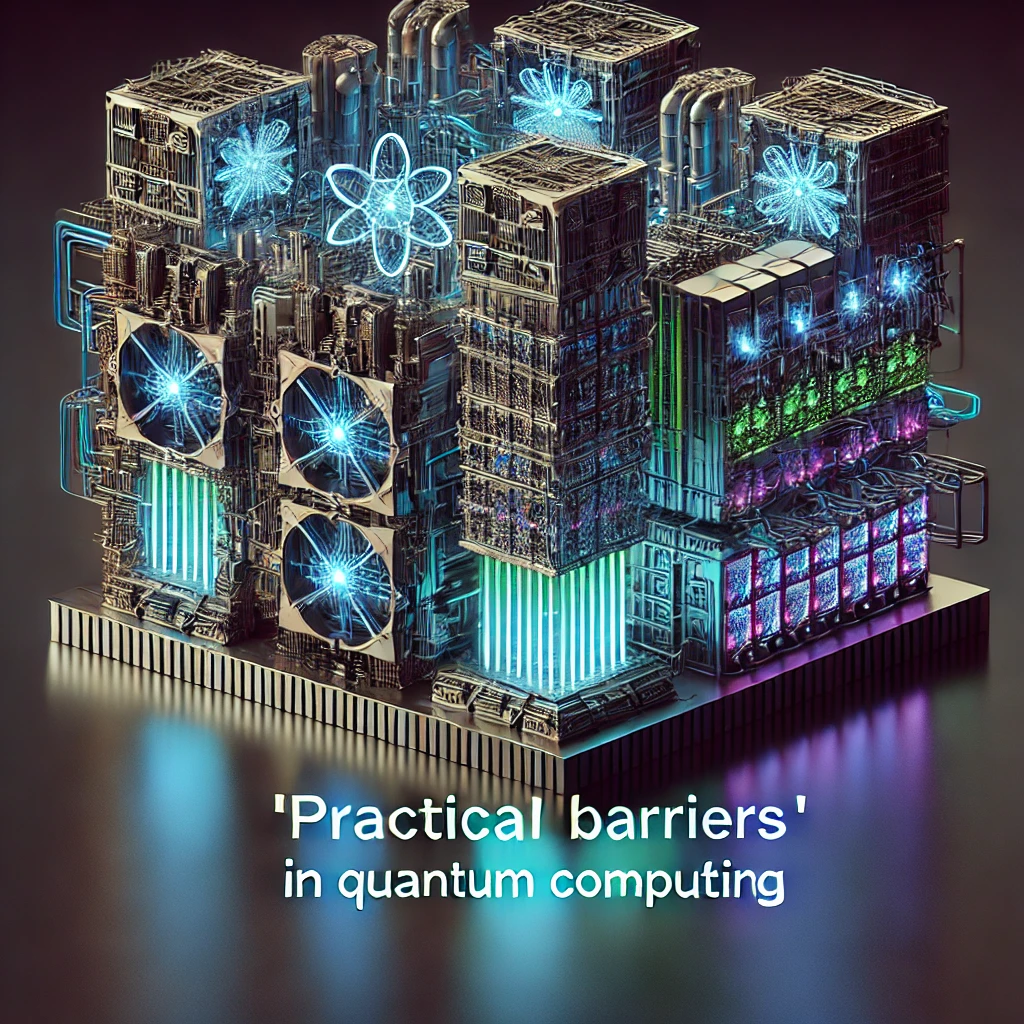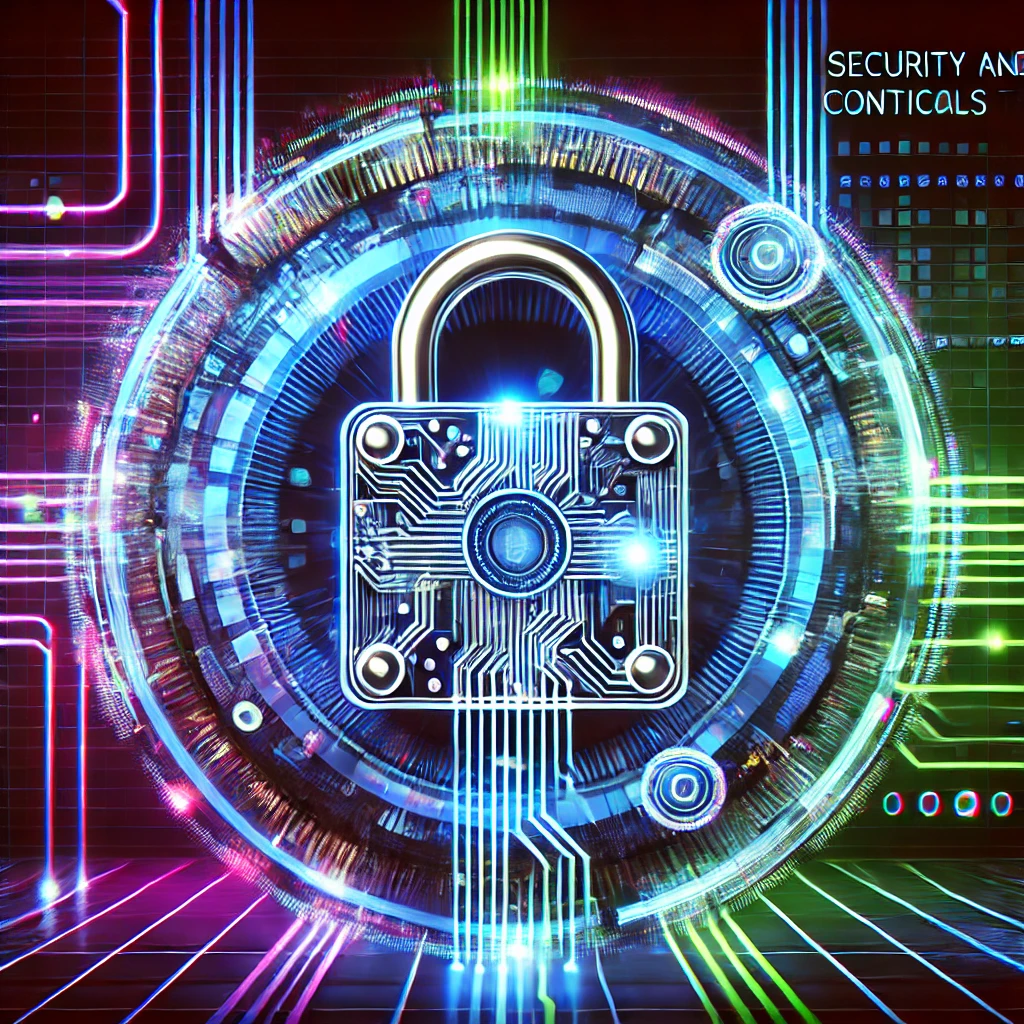The Disadvantages of Quantum Computing: A Comprehensive Exploration
Quantum computing, often hailed as a technological revolution, promises to tackle problems that classical computers will never be able to solve efficiently. The principles of quantum mechanics—like superposition and entanglement—offer new avenues for processing information. While the potential is groundbreaking, quantum computing faces significant hurdles that temper its promise. Understanding these disadvantages is crucial for those seeking to grasp the present limitations and future trajectory of this technology.
This article explores these challenges, offering a deep dive into the technical, theoretical, practical, and ethical limitations of quantum computing. We will also examine real-world examples of quantum computing advancements to contextualize the hurdles.
Introduction to Quantum Computing
Quantum computing departs from classical computing by using quantum bits or qubits. Unlike classical bits, which are binary (0 or 1), qubits can exist in multiple states simultaneously due to the property of superposition. Furthermore, entanglement allows qubits that are spatially separated to be correlated in ways that classical bits can never achieve. These properties enable quantum computers to solve complex problems, such as factoring large numbers or simulating molecules, exponentially faster than classical computers.
Despite this potential, the field faces significant challenges that make quantum computing both promising and impractical for most real-world applications—at least in the short term.
Technical Limitations

Error Rates in Quantum Systems
One of the greatest technical disadvantages of quantum computing is the error rate associated with quantum operations. Quantum systems are notoriously fragile, and qubits are highly susceptible to even the slightest disturbances from their environment. These errors arise due to decoherence, interference, and imperfect gate operations, and they accumulate as quantum algorithms execute.
Quantum error correction schemes are necessary to mitigate these issues, but they impose a significant overhead. For example, one logical qubit (error-corrected qubit) may require hundreds or even thousands of physical qubits. This overhead severely limits the power of today’s quantum computers, which operate with a few dozen to a few hundred qubits at most. To run large, complex algorithms, quantum computers would need millions of error-corrected qubits, which we are far from achieving.
Challenges in Scalability
Scaling quantum computers to support thousands or millions of qubits is another significant hurdle. The difficulty lies not only in increasing the number of qubits but also in maintaining their coherence and reducing errors as the system scales. Unlike classical computers, where more transistors can be added relatively easily, each additional qubit introduces complexity, especially when it comes to maintaining entanglement.
The challenge grows exponentially: entangling more qubits increases the system’s susceptibility to errors, and error correction requires even more qubits. Currently, most quantum computers are at the “noisy intermediate-scale quantum” (NISQ) stage, where they can run computations but only for very short periods before error accumulation ruins the results.
Hardware Constraints and Limitations
The physical implementation of qubits is another area fraught with difficulties. The most advanced quantum computers today use superconducting qubits, which must be cooled to near absolute zero (-273°C) to maintain their quantum properties. Such extreme conditions require complex and expensive cryogenic setups, which are not scalable for widespread use.
Other approaches to building qubits, like trapped ions or photonic qubits, come with their own sets of limitations. Ion trap systems are difficult to scale, and photonic qubits, while operating at room temperature, face significant challenges in maintaining coherence and efficiently processing information.
In addition, quantum computers require ultra-precise control mechanisms, often using lasers or microwave pulses to manipulate qubits. Any deviation in the intensity or timing of these control signals can introduce errors, further complicating the challenge of scaling quantum systems for practical applications.
Theoretical Constraints

Quantum Decoherence
Quantum decoherence occurs when qubits lose their quantum state by interacting with their environment. Maintaining quantum coherence for long periods is essential for running meaningful quantum computations, but this is extraordinarily difficult. Even the best qubits can only stay coherent for microseconds, after which their quantum information is lost, rendering them useless for computation.
Preventing decoherence requires isolating qubits from any environmental noise, but perfect isolation is impossible in practice. Therefore, managing decoherence is a race against time—quantum computers must perform their calculations faster than the qubits decohere. For more complex algorithms, this requires improving both qubit coherence times and computational speed, an area where significant research is still needed.
Fault-Tolerant Quantum Computing
Fault-tolerant quantum computing is an aspirational goal, requiring robust error correction schemes that protect qubits from noise and errors. For quantum computing to achieve fault tolerance, the error rate per qubit operation must be below a critical threshold—usually on the order of 0.01% or lower. Achieving this level of error suppression is incredibly difficult, and it requires many more physical qubits than logical qubits.
For example, a small logical circuit might need several thousand physical qubits for each logical qubit due to the overhead of error correction. Current systems with fewer than 1,000 qubits are nowhere near achieving this scale. Thus, while fault tolerance is possible in theory, it remains a distant goal in practice.
Quantum Control and Noise Management
Noise, broadly speaking, includes any unwanted interference with the quantum system. Quantum computers are highly sensitive to noise, and controlling quantum states with high precision is essential to successful computation. Noise comes in various forms, from electromagnetic interference to temperature fluctuations, and it can disrupt the superposition or entanglement of qubits.
Control techniques, such as quantum gates, must be implemented with extreme precision to minimize the impact of noise. Even minor fluctuations in a gate’s operation can lead to computational errors. Thus, one of the major challenges in developing quantum computers is creating highly reliable control mechanisms that minimize noise while maintaining high performance.
Practical Barriers

High Costs of Development and Infrastructure
The cost of developing quantum computers is prohibitive, limiting their availability to large corporations, government agencies, and well-funded research institutions. Companies like IBM, Google, and Microsoft are leading the charge, investing billions into quantum computing research. However, these costs aren’t limited to hardware development—specialized laboratories, cooling systems, and highly skilled researchers are needed to maintain and advance quantum technology.
Quantum computers also demand massive resources in terms of energy, infrastructure, and maintenance. For instance, the cryogenic systems required for superconducting qubits need to run continuously at temperatures close to absolute zero. These systems are expensive to operate and maintain, which makes quantum computing inaccessible to most institutions, limiting its short-term practicality.
Energy Consumption
Surprisingly, quantum computing is not inherently energy-efficient. Although quantum computers can solve specific problems faster than classical computers, their cooling and control systems consume vast amounts of energy. Superconducting qubits, for example, require cryogenic cooling, which is highly energy-intensive. Even if quantum computers become practical for certain types of computations, their overall energy demands could offset their potential benefits.
In contrast, classical computers have had decades of optimization, and today’s most advanced supercomputers are highly energy-efficient relative to their processing power. Quantum computers are still far from achieving such optimization, and until significant advances are made, they may remain energy-intensive compared to classical alternatives.
Niche and Limited Use Cases
Quantum computing’s most well-known algorithms, such as Shor’s algorithm for factoring large numbers or Grover’s algorithm for database search, have limited practical applications. While these algorithms showcase quantum computing’s potential, the reality is that quantum computers outperform classical ones only in specific cases.
For example, drug discovery, cryptography, and material science are among the fields expected to benefit from quantum computing. However, even in these fields, the current capabilities of quantum computers are nowhere near the level needed for practical use. Today’s quantum computers are primarily used for research and experimentation rather than solving real-world problems.
Security and Ethical Concerns

Disruption of Cryptography
One of the most significant concerns about quantum computing is its potential to disrupt modern cryptography. Many of today’s encryption systems, such as RSA and elliptic-curve cryptography (ECC), rely on the difficulty of factoring large numbers, a task that is computationally infeasible for classical computers. Shor’s algorithm, however, allows quantum computers to factor these numbers exponentially faster, posing a serious threat to current encryption systems.
This disruption would have massive implications for industries reliant on secure communication, such as banking, defense, and e-commerce. Researchers are currently working on post-quantum cryptographic algorithms designed to resist quantum attacks, but the transition to quantum-safe encryption will be costly and time-consuming. Furthermore, even if post-quantum cryptography becomes widespread, existing encrypted data could be vulnerable if quantum computers eventually become powerful enough to decrypt it retroactively.
Ethical Questions Regarding Quantum Computing
The power of quantum computing also raises ethical questions. The ability to crack encryption, for instance, could be used for malicious purposes, and the technology may exacerbate inequalities between organizations and nations that have access to quantum computers and those that do not. If quantum technology is not carefully regulated, it could deepen existing disparities, leading to ethical dilemmas about how, when, and where it should be used.
Real-World Case Studies
IBM’s Quantum Journey: Progress and Setbacks
IBM has been a key player in the development of quantum computing, offering access to its quantum systems via the IBM Q Experience platform. Developers and researchers can experiment with quantum algorithms on real quantum hardware. However, despite IBM’s leadership, the company still faces significant challenges in scaling its quantum systems and reducing error rates. IBM’s quantum roadmap includes plans to increase the number of qubits and enhance coherence times, but progress has been slow, and quantum error correction remains a significant barrier.
Google’s Quantum Supremacy: The Debate
In 2019, Google announced that it had achieved quantum supremacy, claiming that its quantum computer solved a problem faster than the world’s most powerful supercomputers. The problem Google solved, however, was highly specific and not of practical relevance, leading to debate over the significance of this achievement. Critics argue that the term “quantum supremacy” is misleading and that classical computers are still far more efficient for most tasks. Google’s achievement was nonetheless a milestone in quantum computing, but it also highlighted how far the technology is from solving real-world problems.
Frequently Asked Questions
1. What are the main disadvantages of quantum computing?
The main disadvantages of quantum computing include high error rates, scalability challenges, hardware complexity, high costs, and energy inefficiency. Additionally, quantum systems are prone to decoherence, limiting their practical applications in real-world scenarios.
2. How do error rates affect the disadvantages of quantum computing?
High error rates are one of the significant disadvantages of quantum computing, as qubits are extremely sensitive to environmental noise. These errors accumulate during computations, making it difficult to execute complex quantum algorithms reliably without robust error correction mechanisms.
3. Are there scalability issues among the disadvantages of quantum computing?
Yes, scalability is one of the major disadvantages of quantum computing. As the number of qubits increases, so do the difficulties in maintaining coherence and reducing error rates, which limits the computational power of current quantum systems.
4. Why is decoherence considered a key factor in the disadvantages of quantum computing?
Decoherence, where qubits lose their quantum state due to environmental interaction, is a critical issue among the disadvantages of quantum computing. This loss of quantum coherence shortens the time available for computations, reducing the reliability of quantum algorithms.
5. How do high costs contribute to the disadvantages of quantum computing?
The high cost of developing and maintaining quantum computers is one of the significant disadvantages of quantum computing. Building specialized infrastructure, such as cryogenic systems for superconducting qubits, is expensive and limits accessibility to large corporations and research institutions.
6. What role does energy consumption play in the disadvantages of quantum computing?
Energy inefficiency is a surprising issue among the disadvantages of quantum computing. The cooling systems and precise control mechanisms needed to maintain qubit stability consume a vast amount of energy, making quantum computers less efficient than classical ones for many applications.
7. How do the disadvantages of quantum computing impact cryptography?
One of the most discussed disadvantages of quantum computing is its potential to break modern cryptographic systems, such as RSA and ECC, using algorithms like Shor’s algorithm. This poses a significant threat to current cybersecurity infrastructure.
8. Are the disadvantages of quantum computing likely to delay its mainstream use?
Yes, the disadvantages of quantum computing, including error correction, scalability, and cost, are significant hurdles that will likely delay the widespread, practical use of quantum computers for several years or even decades.
9. Can the disadvantages of quantum computing be overcome with future advancements?
While some of the disadvantages of quantum computing, like error rates and decoherence, may be mitigated with future advancements in hardware and algorithms, many challenges remain, such as scalability and energy efficiency, which may take years to fully resolve.
10. Why are niche use cases considered part of the disadvantages of quantum computing?
One of the lesser-known disadvantages of quantum computing is that it currently excels only in highly specialized applications, like quantum chemistry or specific optimization problems, limiting its utility for broader, more practical tasks that classical computers handle more efficiently.
Conclusion: Future Directions and Key Takeaways
Quantum computing remains one of the most exciting frontiers in modern technology, but its development is fraught with challenges. Technical limitations like high error rates, scalability issues, and the complexity of hardware constrain its current capabilities. Theoretical hurdles like decoherence and the need for fault-tolerant computing further complicate progress. In addition, practical barriers like high costs and energy inefficiencies, combined with niche use cases, make quantum computing inaccessible to all but the most well-funded organizations.
Key Takeaways
- Error Rates and Decoherence: Quantum computers are prone to errors due to environmental noise, limiting their ability to perform complex computations reliably.
- Scalability: Scaling quantum computers to support thousands or millions of qubits is a major challenge, with current systems far from practical use.
- Costs and Energy: The high cost of development and energy-intensive nature of quantum systems limit their accessibility.
- Security: Quantum computing poses a serious threat to modern encryption, raising concerns about cybersecurity and privacy.
- Ethical and Practical Concerns: The power of quantum computing may exacerbate inequalities, and its real-world applications are still limited to niche areas.
While quantum computing holds immense promise, its future depends on overcoming these significant obstacles. For now, businesses and researchers should approach the technology with cautious optimism, investing in long-term development while recognizing the limitations of today’s quantum systems.









